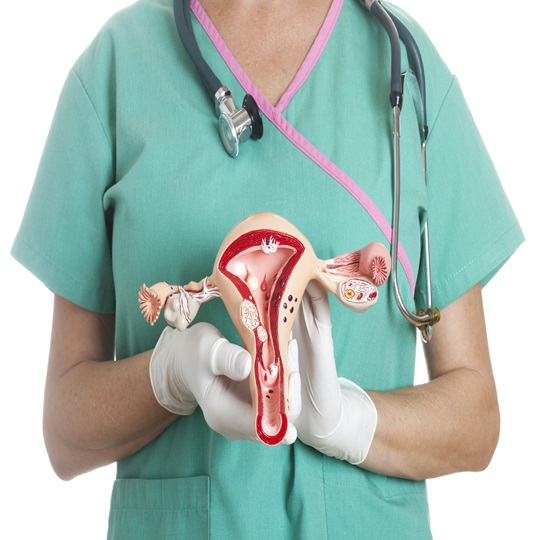What is Vulvodynia?
Vulvodynia is a medical term given to the pain felt in the genital area of women and especially increased by contact with the vaginal entrance. The vulva is a group of structures that make up the outer part of the female genital organs. Vulvodynia refers to chronic, recurring and sometimes vague pain felt in this area.
This condition usually occurs as a result of sensitivity or irritation of the tissues at the entrance of the vagina. However, vulvodynia can develop not only for physical reasons, but also sometimes due to psychological factors.
It can be triggered by simple contact such as during sexual intercourse, using pads, using genital cleaning products, or wearing tight underwear. Therefore, the quality of daily life of individuals experiencing vulvodynia can be significantly affected.
Symptoms include burning, itching, sensitivity, pain or pain during sexual intercourse in the vaginal area. These symptoms can vary from person to person and can sometimes be very disturbing.
It can occur for many different reasons. These include infections, skin diseases, hormonal changes, allergies, nervous system problems and psychological factors. Therefore, it is important to diagnose and determine the appropriate treatment.
It is usually a treatable condition. The treatment plan will vary depending on the underlying cause and may often include a variety of methods, such as medications, topical creams, physiotherapy, sexual therapy or psychological counselling.
How to Relieve Vulvodynia Pain?
Vulvodynia pain is a condition that can be affected by many factors that vary from person to person. A treatment plan is usually tailored to an individual’s symptoms, underlying causes, and personal health history. Here are some common methods for vulvodynia pain relief or control:
Medications: To reduce pain and inflammation, doctors often recommend anti-inflammatory medications (such as ibuprofen), antihistamines, or medications that help reduce neuropathic pain (such as amitriptyline).
Topical Creams and Lotions: Topical treatments such as topical anesthetic creams, corticosteroids, or local anesthetics can help relieve pain. However, long-term use of such creams can cause side effects, so follow your doctor’s recommendations.
Physiotherapy: In some cases, physical therapy programs that strengthen and relax the pelvic floor muscles can help relieve pain. Proper functioning of the pelvic floor muscles can help reduce pain in the vulvar area.
Stress Management and Psychological Support: Pain is often associated with stress or anxiety. Therefore, it is important to get psychological support as well as stress management techniques such as relaxation techniques, meditation, and breathing exercises. Working with a psychologist or therapist can be an effective strategy for coping.
Sexual Therapy: Pain can occur during sexual intercourse, which can lead to sexual dysfunction. Sexual therapy or counseling can be useful to make sexual intercourse more comfortable and to strengthen communication between couples.
Diet and Lifestyle Changes: Certain foods and drinks can trigger vulvodynia symptoms. Lifestyle changes such as avoiding spicy foods, wearing cotton underwear, and avoiding vaginal cleansers can help reduce pain.
Each person’s vulvodynia treatment may be different, so it is important to consult a healthcare professional to determine the most effective treatment plan.
Is Vulvodynia Psychological?
Vulvodynia is not usually associated with physical factors alone, as psychological factors can also be present as underlying causes. Therefore, vulvodynia can sometimes have a psychological origin, or psychological factors can trigger or worsen vulvodynia symptoms.
Stress and Anxiety: Stress and anxiety can cause muscle tension and inflammation, which can make the body more sensitive overall and increase the sensation of pain. This can increase or worsen your symptoms.
Depression: Depression can increase your body’s sensitivity to pain and trigger chronic pain conditions. Depression can increase a person’s perception of pain and worsen their symptoms.
Sexual Trauma: Sexual trauma, past sexual abuse, or traumatic experiences can trigger or worsen your symptoms. Such experiences can cause a person to feel pain or discomfort related to sex.
Sexual Relationship Problems: Sexual relationship problems can increase your symptoms due to stress, anxiety, or communication problems in the relationship. In addition, avoiding sexual activity to cope with your symptoms can increase disharmony in the relationship.
Chronic Stress and Fatigue: Chronic stress and fatigue can cause the body to become more sensitive overall and increase the sensation of pain. This can increase or make your symptoms chronic.
When vulvodynia pain has psychological roots, treatment often requires a multidisciplinary approach. This can help reduce symptoms and improve your quality of life by addressing both physical and psychological factors. Therefore, treatment can include not only physical methods, but also psychological counseling, therapy, or stress management techniques. Working with a psychologist or therapist can play an important role in managing your symptoms.







